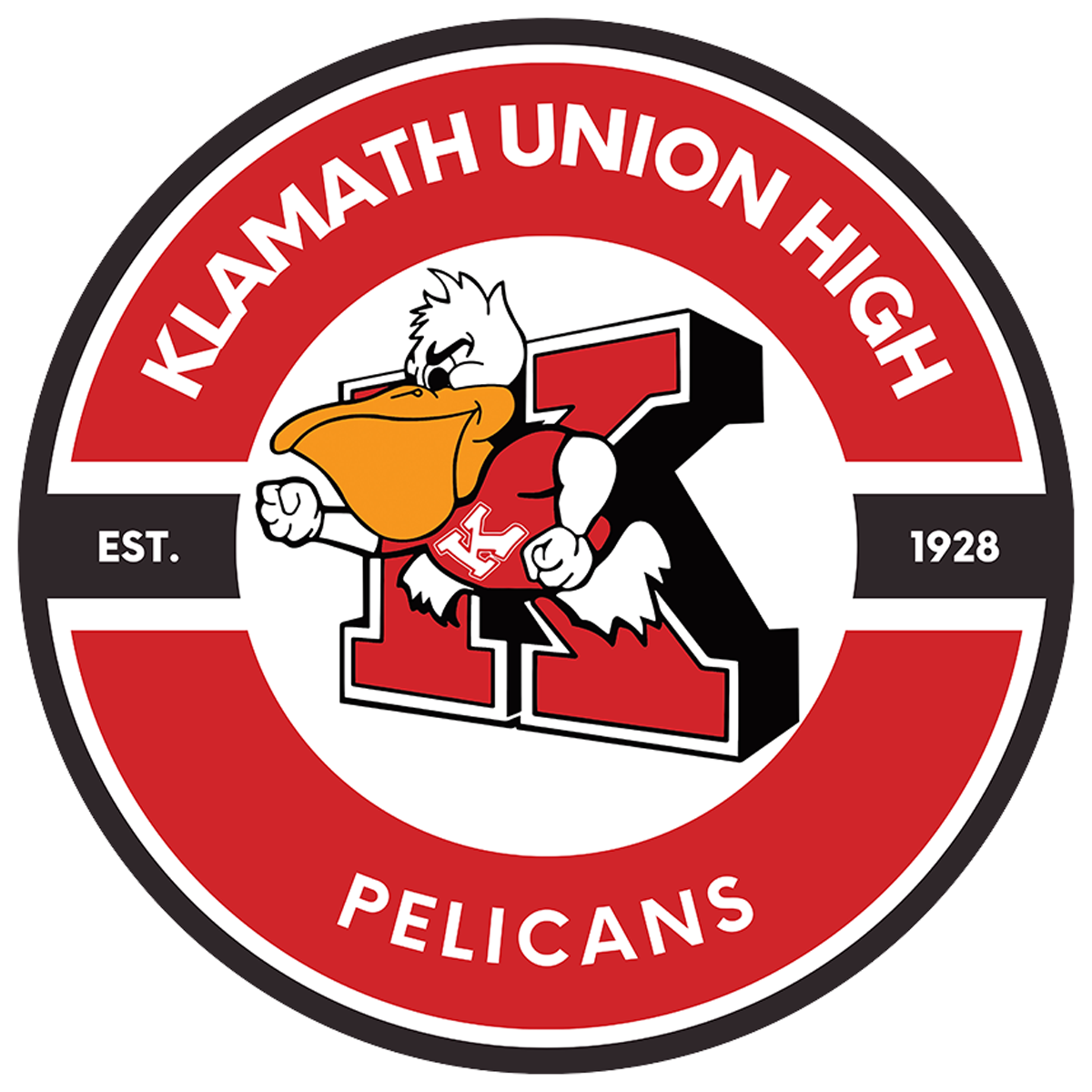Life was very different as a Klamath Union High School student, certainly, in the late 1960’s. It is a momentous week for many Klamath Union alumni who will be inducted into the Klamath Union High School Hall of Fame this week.
A pioneer, who helped integrate female sports at KU, will be having her moment to be honored before a hall of fame ceremony Friday. Sharon Brite, a head coach at the school from 1968 to 1972, took a moment during lunch time Thursday to share some of her experiences as girls sports were launched at Klamath Union 55 years ago.
Klamath Union Assistant Principal and Athletic Director Tyler Baker put together the event Breaking Barriers, which had school staff and students hear from Brite.

Before Title IX of the Civil Rights Act of 1972, which “prohibited sex-based discrimination in any school or any other education program,” there were no sports at Klamath Union except for a swim team, which was a club in the fall.
As it can be imagined, life as a girl or women was night and day different to how it is now. Brite let her audience know it.
“Now, you can wear pants. I wore a dress each day and it was just a struggle to be seen or get up to get the mail at the high school,” Brite said.
Brite had a handful of accomplishments at KU. In 1972, Brite was recognized as the Oregon Track and Field Coach of the Year while guiding the Lady Pelicans to an undefeated season and the first ever Southern Oregon Conference Championship.

Nine of Brite’s female track and field athletes qualified for the state meet that year. In doing so, 11 new KU records were set.
Life as an athlete during the late 1960’s
Just being able to function and have sanctioned sports were a nightmare in the late 1960’s. As Brite was head coach of swimming and track and field, there were no timers, faulty stopwatches and team’s how to get their own judges.
The result, times were inaccurate. A millisecond is an eternity in track and field and is the difference from an athlete qualifying into district and state competitions, Brite described.
Brite expressed how girls didn’t have cleats or uniforms to wear in sports and had to borrow equipment and uniforms from the boys teams.
“I had regular converse shoes on and so did many girls until Phil Knight came in a Volkswagen and had us try shoes on one day,” Brite said. “It did not work to get a girl into a guys shoe. Former Klamath Falls City Schools Superintendent Earl Ferguson’s daughter was part of the team so it helped us budget.”
There was no OSAA website to look from when Brite was a coach at KU, and athletes did not have a schedule or rulebook to look through.
There was also no way to look back on a performance through video footage.
“I don’t know if you can appreciate having a dirt or cinder track but back then, you had to line it … the tops off the hurdles and drag them around and do it with chock. During first period, they were washed off from the sprinklers. We learned a lot then,” Brite said.
Brite did a lot of heart to heart talk with parents, who some, were reluctant to let their daughters join sports, not wanting them to suffer injury.
Brite was coach of renown athlete in the Klamath Basin, Ella Redkey.
“The girls had to overlook stereotypes. That was a city pool and had no geothermal heat. We used it in 1972 for meets. Swimming, it was a fall sport and it was hard for divers to dive because of how cold it gets,” Brite said.
Brite recalled how her swim team had to practice in what was referred to as the school’s fieldhouse pool, which is still used at the school today but was a small space for Brite’s team to practice in.
The Klamath Union Hall of Fame inductee was moved to tears several times as she shared her experiences, along with a conversation with a KU athlete, who thanked her with a hug.
Brite is a friend of longtime cross country and track and field coach at KU, Rob Coffman, who she mentioned in her presentation as she expressed she keeps up with Klamath Union athletics even to this day.
“The track was a compost track and jumpers had to jump from sawdust. We had to cover it with tarps and it would get wet and hard. It was not a fun thing to compete in but we did,” Brite said. “I think of myself over 60 years ago as I am here today and I am humbled to be before all you students.”



